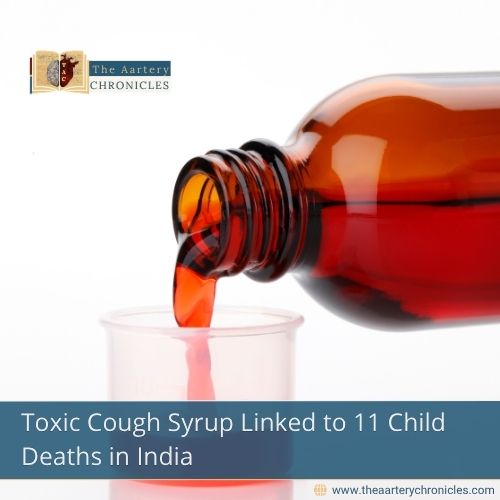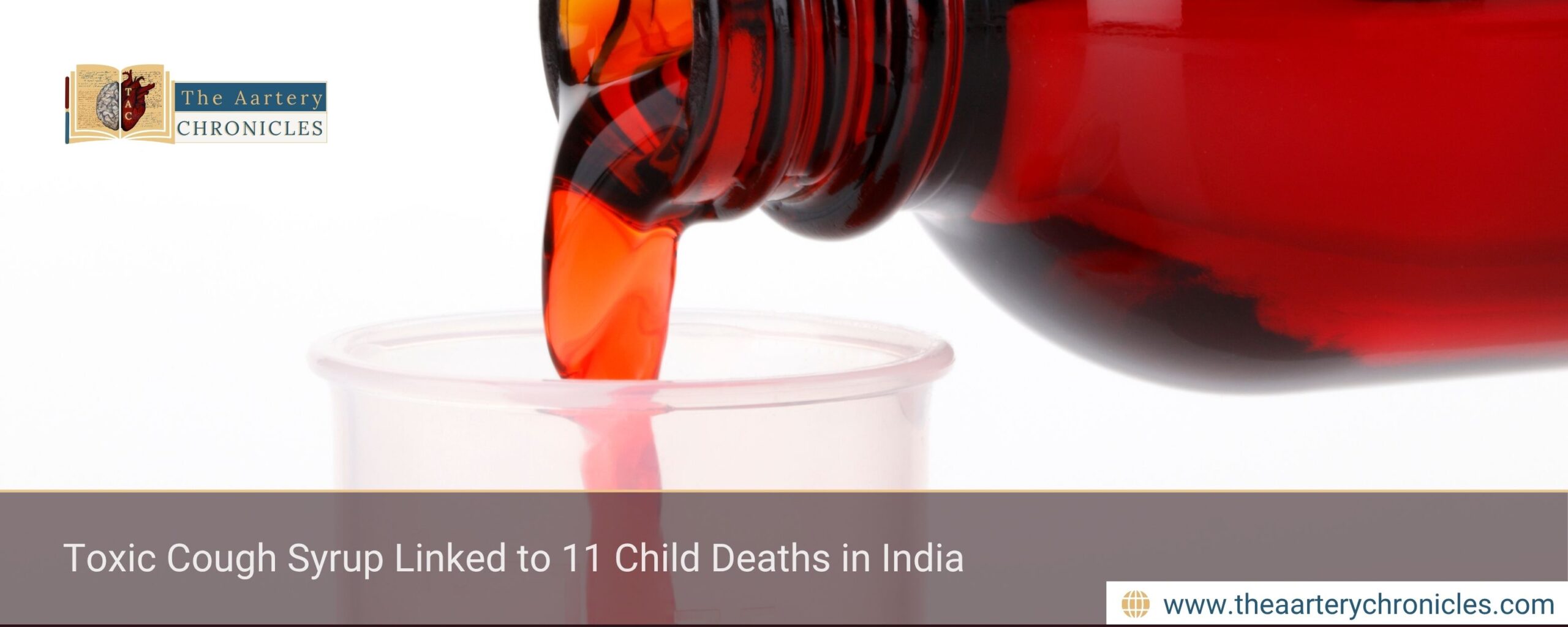

Toxic Cough Syrup Linked to 11 Child Deaths in India
A worrying new development has refocused attention on cough syrup contamination as a possible cause of recent child deaths. The Union Health Ministry announced that tests conducted on a specific cough syrup, ColdRif, revealed unsafe levels of diethylene glycol (DEG), a dangerous chemical known to damage kidneys.
At least nine children in Madhya Pradesh and two in Rajasthan have died in the past two weeks from acute kidney failure. These deaths have triggered a careful investigation involving multiple health agencies nationwide.
Government’s Initial Findings and Later Reversal
Initially, the central government had stated that samples of cough syrups collected in Madhya Pradesh did not show contamination. However, newer results published on 3 October overturned that claim: Tamil Nadu’s Food and Drug Administration collected ColdRif syrup from its manufacturing site (M/s Sresan Pharma in Kanchipuram) and detected DEG levels beyond permissible limits.
DEG is a toxic compound that, if ingested, can severely injure kidney tissue and lead to acute kidney failure. This finding has forced investigators to reconsider pharmaceutical contamination as a likely cause of these tragic deaths.
Nationwide Advisory Issued for Pediatric Use
In response, the Directorate General of Health Services (DGHS) has released a nationwide advisory stressing the rational use of cough syrups in children. Key points include:
- Cough and cold medications should not be prescribed or dispensed to children under two years of age.
- Generally, such medications are not recommended for kids under five.
- For older children, any use should follow strict clinical evaluation, appropriate dosing, the shortest duration, and avoidance of multiple drug combinations.
- The public should be sensitised to follow prescriptions carefully and avoid self-medication.
Because many childhood coughs are self-limiting (i.e., improve on their own), the DGHS emphasises nonpharmacological care unless symptoms indicate a more serious cause.
Expanded Inspections across the Country
On 3 October, authorities launched risk-based inspections of the 19 drug manufacturing sites whose products had been sampled (across six states). The aim is to identify gaps in quality control, process failures, or regulatory lapses that allowed such contamination to occur.
A multidisciplinary team, including experts from ICMR, AIIMS Nagpur, National Institute of Virology, NEERI, and CDSCO, continues to analyse medical, chemical, and environmental samples in the Chhindwara region and beyond.
Past Incidents Lend Context
This incident is not isolated. In 2022, the World Health Organisation issued alerts after Indian-manufactured cough syrups were implicated in child deaths in Gambia and Uzbekistan. Investigations confirmed that many of those syrups contained dangerous contaminants. The current tragedy echoes past lapses, reinforcing the need for robust oversight and pharmaceutical safety.
What Parents and Physicians Should Know
- Be cautious when using any cough syrup for children, especially infants and toddlers.
- Ask for drug safety certifications or lab reports if available.
- Monitor for warning signs like reduced urine output, swelling, fatigue, or dark urine; these may suggest kidney injury.
- Physicians must balance the potential benefits of symptomatic relief with possible risks and limit use only when clearly necessary.
- Regulatory bodies must strengthen enforcement, random testing, and recall procedures to prevent further cough syrup contamination.
In summary, the detection of DEG in ColdRif reintroduces cough syrup contamination as a central suspect in the recent child deaths. As the investigation widens, it underscores the vital importance of drug safety, rational prescribing, and vigilant public health oversight.
Source: Inputs from various media Sources
I’m a pharmacist with a strong background in health sciences. I hold a BSc from Delhi University and a pharmacy degree from PDM University. I write articles and daily health news while interviewing doctors to bring you the latest insights. In my free time, you’ll find me at the gym or lost in a sci-fi novel.
- Priya Bairagi
- Health News and Updates,People Forum
- 6 October 2025
- 09:00








